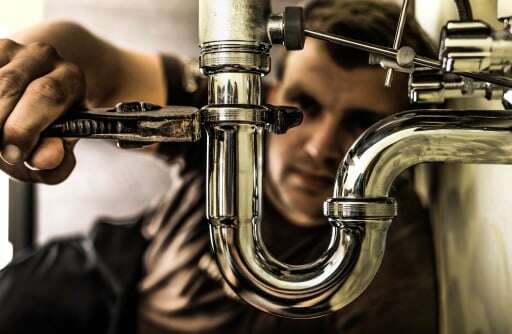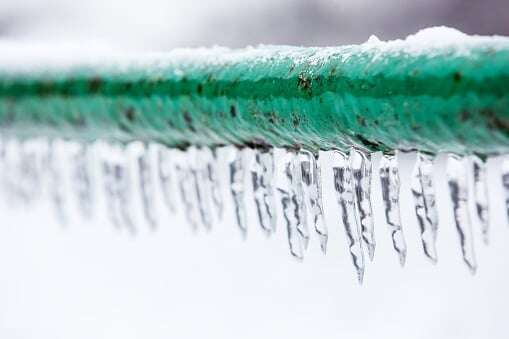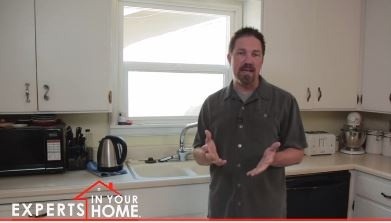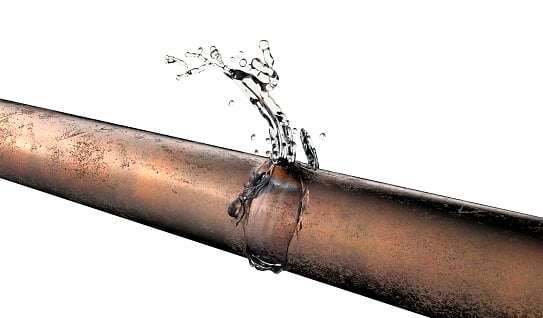 There are few sounds that can strike fear in the heart like the sound of water gushing into your home, loudly striking against the walls and the ceiling and splashing against baseboards as a rising tide engulfs the floor.
There are few sounds that can strike fear in the heart like the sound of water gushing into your home, loudly striking against the walls and the ceiling and splashing against baseboards as a rising tide engulfs the floor.
Chances are, this traumatic and expensive domestic crisis was caused by a pipe burst or other plumbing malfunction. Since it is most likely to occur in the winter, allow Experts in Your Home help you safeguard your home plumbing before temperatures plunge in northern California.
Know the Danger Threshold
You probably have a good idea why a pipe bursts, especially if you have ever put a can of soda in your freezer to chill it quickly – and then forgot that you put the can there. When the liquid freezes, it expands and the can eventually bursts, coating your freezer with chunks of soda sludge.
In the same way, when water within a pipe freezes, it expands and can explode – only the consequences are much more serious. Pipe bursts often cause property damage that exceeds $5,000, the Insurance Institute for Business and Home Safety says.
Regions like ours – where freezing winter weather is the exception rather than the rule – should be extra vigilant about the prospect of freezing pipes when outdoor temperatures fall to 20 degrees Fahrenheit, the institute says.
Take Proactive Plumbing Steps
Of course, you shouldn't wait for this so-called “temperature alert threshold” to descend on you before taking proactive steps to prevent a plumbing crisis. You can step into gear right now by:
- Locating your home's main shut-off valve (if you haven't already) so that you can move quickly in an emergency. In fact, everyone in your family should know how to operate this valve since anyone can step into a plumbing emergency.
- Closing the shut-off valve leading to outdoor faucets and draining the outside lines of water so that the lines do not freeze and burst. If your home does not have this type of shut-off valve, Experts in Your Home can install one for you.
- Disconnecting hoses from outdoor faucets and putting them away until spring.
- Inspecting all the sinks, faucets, tubs and toilets in your home for leaks and either repairing them yourself or calling our licensed plumbers to repair them for you. Look too for signs of leaks, including water stains, warped wood or tile and the smell of mildew or mold.
- Calling Experts in Your Home Chico plumbers so that we can inspect and clean your sump pump and pit so that it doesn't freeze, burst and fill your home with water.
- Allowing us to inspect your water heater (as long as we're at your home anyway) and clean it, if necessary. Water heaters generally work harder in the winter, and they're most likely to break down then, too.
Protect those Pipes
- Wrap vulnerable pipes in foam insulation sleeves, which can be purchased at most home improvement stores. The sleeves are simple to install: you cut a foam sleeve to the length you need, open it wide and wrap it around a pipe. Look for sleeves with self-adhesive edges, but if you cannot find them, you can use duct tape to keep the sleeves shut – and your pipes warm. This precaution is especially important with pipes closest to exterior walls and those in the attic and crawl space.
- Keep cabinet doors under sinks open during that “temperature alert threshold” so that warmer air can circulate around pipes.
- Set your faucets to trickle water as slowly as possible during that threshold zone to keep the water flowing and to prevent pipes from freezing.
- When you leave home during the winter, leave the heat on, setting the temperature to no lower than 55 degrees.
Reach out to Experts in Your Home Chico area Plumbers if you need a pipe repair or assistance with getting your plumbing ready for the cold months ahead. No problem is too small for us to address, especially if it means helping you avert a plumbing disaster in your home.








